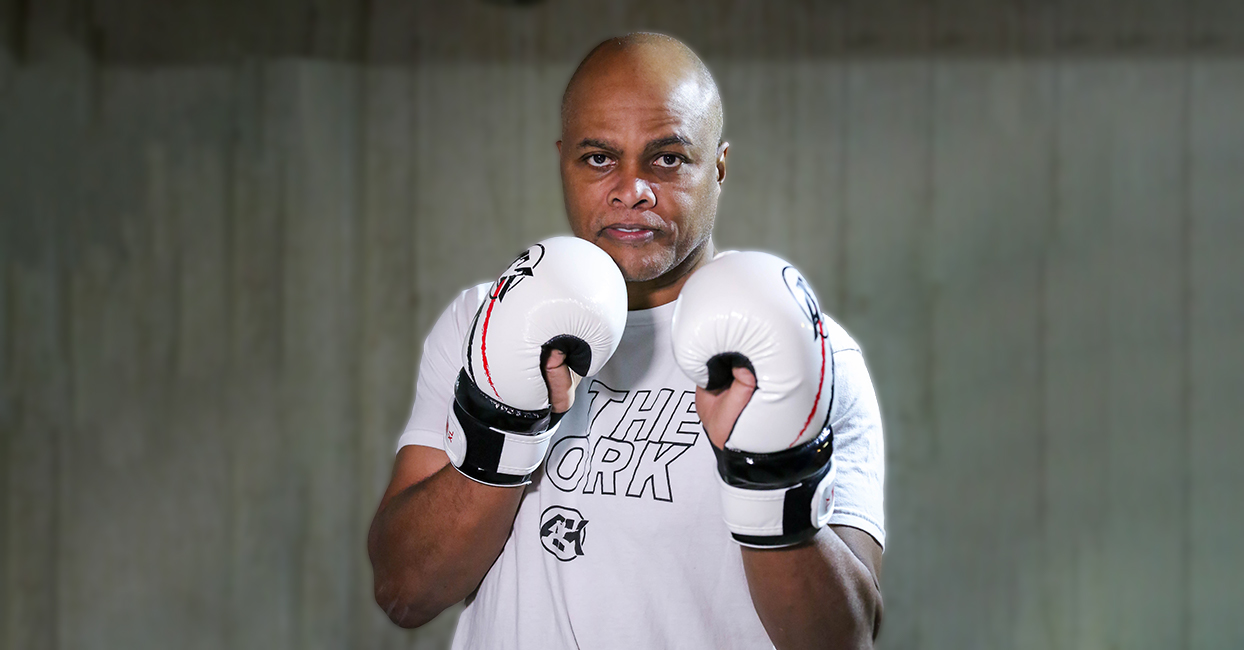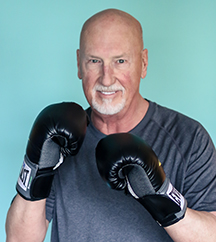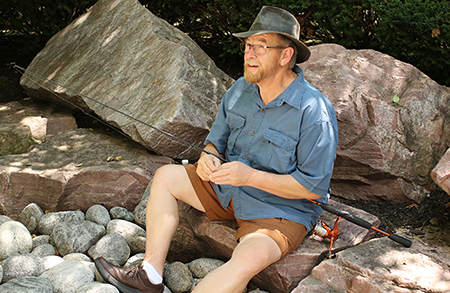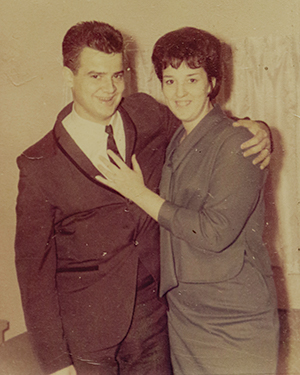 Trudy Cowan, 77, has spent her entire life tending to people. From raising four children to looking after her late mother-in-law for 10 years, caring for others comes naturally. When her husband, Ed, became ill and bedridden, she didn’t hesitate to assume the role as his sole caregiver.
Trudy Cowan, 77, has spent her entire life tending to people. From raising four children to looking after her late mother-in-law for 10 years, caring for others comes naturally. When her husband, Ed, became ill and bedridden, she didn’t hesitate to assume the role as his sole caregiver.
For over two years she put her own health and well-being aside and used every ounce of energy to care for Ed. It wasn’t until he died in January 2022 that Trudy started to realize how much she was struggling to breathe. The grief and devastation of losing her husband of more than 50 years weighed heavily on her heart. Yet she knew if she didn’t take care of herself, she would quickly follow in his footsteps.
“I had too much life left in me; I needed to take care of me,” said Trudy of Independence.
Searching for Answers
Trudy started with her primary care doctor, Thomas LaBruzzo, DO, with Meritas Health North Kansas City. Dr. LaBruzzo suggested she take a lung function test, which measures airflow in and out of the lungs. The test indicated Trudy had a mild airway obstruction from lung damage — a diagnosis that breathing medications could help manage. But after a few weeks on the medication, her shortness of breath only worsened.
“I could barely walk the 15 steps from my dining room to the bathroom without stopping to catch my breath,” Trudy said.
She was determined to find relief. Dr. LaBruzzo referred her to Justin Ranes, MD, a pulmonologist with Meritas Health Pulmonary Medicine, who diagnosed Trudy with mild chronic obstructive pulmonary disease (COPD).
COPD is a progressive lung disease that makes getting air in and out of the lungs and airways difficult, which can lead to other breathing-related issues such as chest tightness, chronic coughing and wheezing. While this disease has no cure, treatment options and lifestyle changes can help keep symptoms under control. Dr. Ranes recommended Trudy attend North Kansas City Hospital’s Pulmonary Rehabilitation program.
Pulmonary rehab is an education and exercise program designed to increase disease awareness and improve lung function. It helps those living with COPD become more independent, control and reduce their symptoms, and lower their chances of hospitalization.
“Pulmonary rehab is a holistic, natural way to help people get better on their own,” Dr. Ranes said. “It provides patients exercise, education and social support to help manage their COPD and improve their overall health.”
Trudy was skeptical as she had never been very active, but her willingness to get better pushed her to try anything her care team suggested.
Pushing Past the Limit
Health Expert
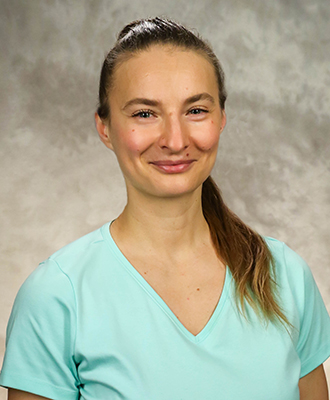
Snizhana Weber, CCRP
816.691.1575
Learn more at
nkch.org/PulmonaryRehab.
Trudy began pulmonary rehab in August 2023 with Snizhana Weber, CCRP, an exercise physiologist in NKCH’s Cardiac and Pulmonary Rehabilitation. During her first session, she completed a detailed health assessment and set goals. Trudy had two objectives: to feel confident walking and healthy enough to keep driving. Snizhana worked with Trudy to build an 18-session personalized exercise program.
A major part of Trudy’s treatment plan was walking on a treadmill for at least 20 minutes each session. The first time, she was only able to walk four minutes. While this discouraged her, Trudy’s care team motivated her to keep pushing.
In addition to the physical benefits, pulmonary rehab offers emotional support by bringing patients living with lung disease together. Participants work alongside one another and talk about their feelings and struggles. Trudy’s rehab care team and peers motivated her to stay committed while battling her grief and depression.
“I felt like I was in a family that was there to help each other,” Trudy said. “Even when it felt impossible, their faith in me helped me believe in myself again.”
Young and Spry
Trudy completed pulmonary rehab in October 2023 and has since felt anew. She has found a passion for exercise because it helps her feel better, mentally and physically. She joined a gym with her sister and works out regularly. Her confidence has skyrocketed, allowing her freedom to go anywhere without fearing shortness of breath. She credits Snizhana and the rest of her care team’s support for much of her progress and success.
“The rehab staff poured love over me, which I so desperately needed after losing the love of my life,” Trudy said. “Their dedication and motivation helped bring me out of my shell and feel 10 years younger.”
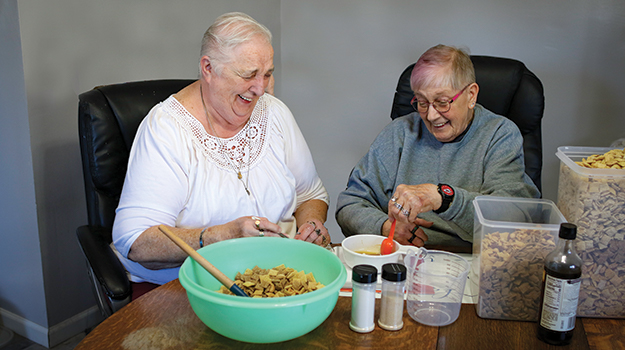
Trudy Cowan (left) doesn’t hesitate to lend a hand to her loved ones, including her lifelong friend,
Christine “Chris” Hamilton. Chris, who has debilitating arthritis, moved in with Trudy for support.
Recognize the COPD Signs
COPD affects nearly 12 million people in the U.S., yet many may not realize they have it. Symptoms can vary for each person and progress as the disease worsens.
Early Symptoms
- Mild, recurrent cough
- Occasional shortness of breath
Worsening Symptoms
- Chest tightness or wheezing
- Chronic cough
- Fatigue or consistent tiredness
- Frequent respiratory infections
- Shortness of breath from any level of activity
If you relate to any of these symptoms, talk to your primary care doctor about how to feel better and breathe easier.
Related Articles
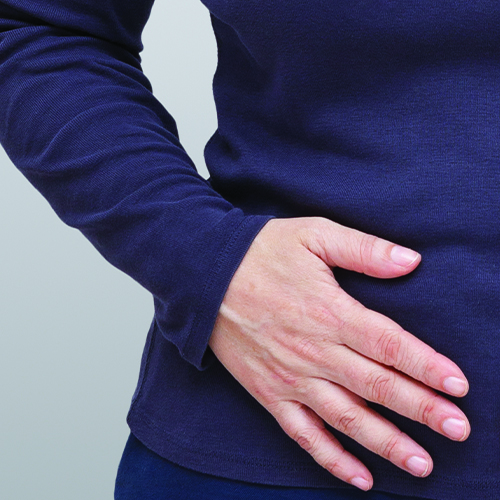
March 9, 2020
3 Sneaky IBS Triggers
For people with irritable bowel syndrome, spring may spark a flare-up in symptoms
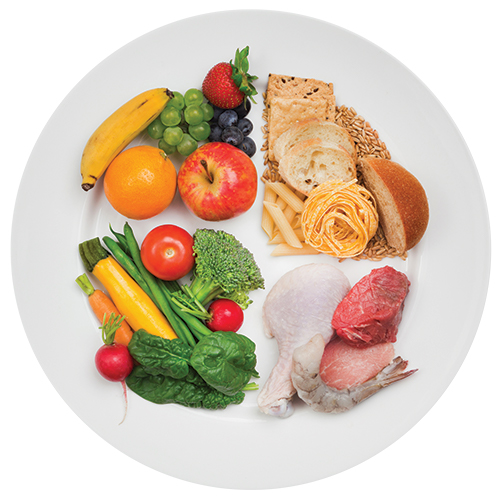
May 31, 2024
5 Nutrition Tips for a Healthier Lifestyle
Healthy eating and proper nutrition play a big part in maintaining good health. Here's how to improve your nutrition habits.
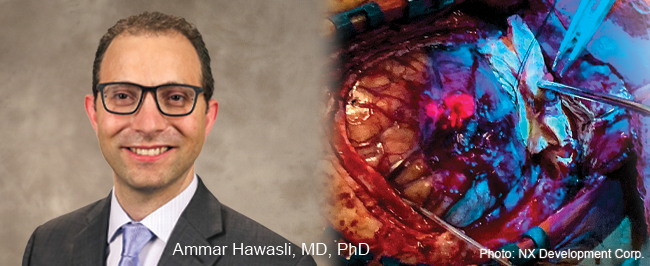
July 8, 2021
5-ALA Fluorescence Guides Neurosurgeons for More Complete Resections
Neurosurgeons Ammar Hawasli, MD, PhD, and Stephen Reintjes Jr., MD, with Meritas Health Neurosurgery, are now using a progressive treatment that allows for the more precise removal of malignant gliomas and glioblastomas.
